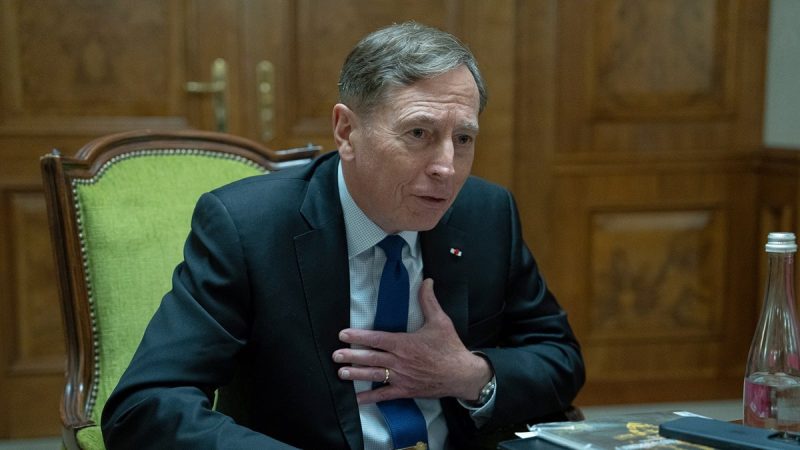The U.S. has no responsibility to keep its allies on the ‘cutting edge’ of artificial intelligence (AI) development — unless it is a matter of national security, a former CIA director and retired Army officer tells Fox News Digital.
‘First and foremost is to ensure that we are on the cutting edge,’ retired four-star Gen. David Petraeus said during a recent Zoom interview.
‘Certainly, we should share to varying degrees with our closest partners, and they share with us — again, no one of us is smarter than all of us together in these kinds of endeavors — but it’s not our job entirely to ensure that they are proceeding along these lines, unless it’s, of course, in our national interest to do so, and it is in a number of different cases,’ he explained.
The pace of AI development has dominated conversation since public access to ChatGPT in November 2022, particularly with concerns over who will stay at the top of the game — a race that drove countries to reassess their investments in the burgeoning field.
China and the U.S. in particular have focused on developing AI as much as possible in different fields, though the U.S. has discussed a far more regulated approach, as opposed to China’s more hands-free environment, as long as the AI passes certain reported threshold tests for reflecting socialist values.
The U.K. over the summer announced that it would invest $125 million in computer chips to keep pace with the AI development from nations like the U.S. and China, but experts and officials argued even that significant investment was not nearly enough to stay at the top of the field.
Cooperation has therefore remained a key point of the discussion, especially when the U.S. has certain bilateral intelligence agreements, such as the Five Eyes Alliance with the U.K., Canada, Australia and New Zealand.
The White House touted one such agreement, the ‘Atlantic Declaration,’ signed in June of this year, as something that would ensure that the ‘unique alliance is adapted, reinforced and reimagined for the challenges of this moment,’ including the ‘handful of critical and emerging technologies’ such as AI that are ‘forming the backbone of new industries and shaping our national security landscape.’
Petraeus highlighted ‘interoperability’ as one of the chief reasons the U.S. might look to keep allies at the ‘bleeding edge’ of development, saying that in those cases, ‘it’s incumbent on us to share together,’ because any such agreement is a ‘two-way street.’
‘The closer you are as a partner, the more we should be focused on that, but it’s not our job to ensure that everybody is making the most of any more than it is that we ensure that they’re doing well in all the other areas,’ he argued, noting that uneven development of technology and weapons has remained a challenge ‘for decades’ and that a gap in AI development does not present ‘a massive issue.’
Such shortcomings in the past have required the U.S. at times to figure out how to compensate and help a country deal with ‘lack of certain capabilities,’ which Petraeus acknowledged often required the U.S. to share what it had or link the country into the larger American mechanisms, as in the case of air support or drones or aerial medevac.
‘Some countries in NATO were on the cutting edge, the bleeding edge of technological advances, [with] the U.S., of course, leading the way and then others are well behind, but we’ve always had this in some respects,’ he said.
‘That’s the job of the country that leads coalitions, and in the most important cases, that is going to be in the United States.’
Petraeus served 37 years in the military, achieving the rank of four-star general and overseeing operations in Iraq and Afghanistan before taking over as director of the CIA — a post he left in late 2012.
AI at the time remained in a nascent stage and did not have much integration: Petraeus said the most he saw was machine learning and that development ‘galloped ahead’ in more recent years, which he has witnessed through his work at an investment firm.
That pace of development has been ‘nothing short of breathtaking,’ the general said, stressing that it is ‘incumbent on all of us… certainly incumbent on those in the defense world, but also the business world, in the intelligence world, all the other worlds… to identify how this can be employed in ways that improve productivity, efficiency, effectiveness.’

